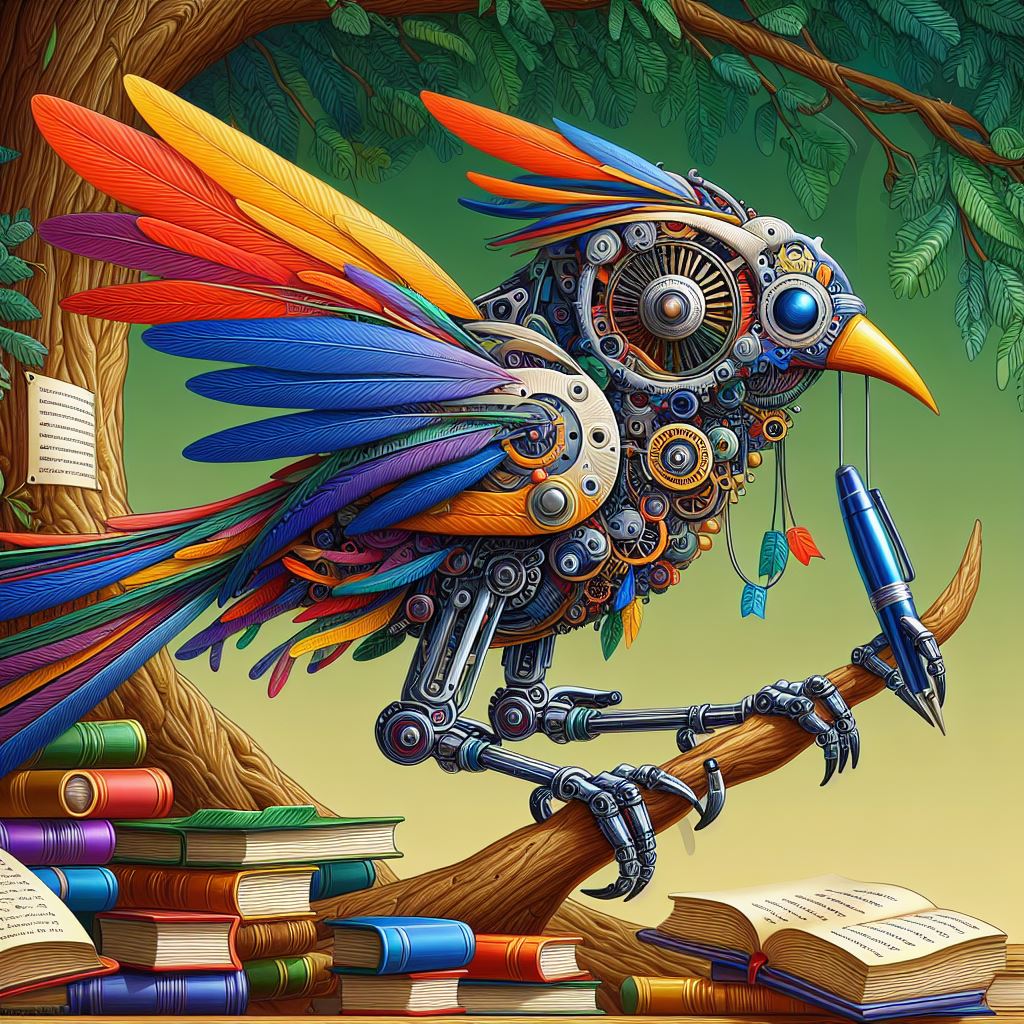Last week has been more of the same: jobs, taxes, ANTLR v.4, but I also spent time on some interesting programming challenge, the one billion row challenge AKA “1BRC”; I’ll get there in a bit.
Most of LinkedIn readings are boring: self-promotion, big companies marketing, people complaining, people posting useless charts with blinking/moving lines and what not, people posting useless or weird AI generated stuff, but occasionally, there’s an interesting post coming out of the lot, and it’s usually about coding - YAY! - and about how to either do things better (patterns and stuff) or just some coding challenge. But, since I mentioned AI generated pictures, let me first explain what the featured one in this post is supposed to mean.
In the past, when I was posting blogs, I used to do a quick Google Image search about the topic I wanted to blog about, then either capture and slightly modify one interesting picture, or just use the link to that picture, which often ended in a missing picture after a while… Now, thanks to AI, I just go to Bing.com. I used to hate Bing, but lately I have to say I’ve been impressed by their progress, as long as you don’t use their search engine; unfortunately, their self-censoring is giving either no answer or just dumb ones on many occurrences. But for AI genrated pictures, Bing is THE site to go. I’m not sure how many AI pictures you can generate for free in a day, but as far as I’m concerned, I seem to be able to get a few for my occasional posts so that’s perfect.
But perfection in the AI world is quite relative. First, unless you ask specifically for certain words,
the generated picture will likely have scrambled eggs words. Also, most things generated are
usually highly disturbing: a combination of impossible, fantastic, ingenious, weird, and frankly crazy.
For instance, today I asked Bing to generate the “picture of a grammar parser”. Yes, I know: what
could a grammar parser even be? Honestly, I don’t know, but I was curious to see what AI would think
it is. And to my surprise, Bing generated four pictures of colored birds standing on books…
My first reaction was: “is a parser some kind of bird?!?”. So I checked Google (yeah, I didn’t trust Bing too much on that one…), and no: no trace of any parser birds. But well, that doesn’t matter, because everyone knows that the picture is just there to call attention (which is why you’re reading this, to my knowledge) and what could be nicer than a colorful bird posing on books? And totally related to my learning of ANTLR (the books, not the bird…). But let’s get back to the coding challenge first.
So, what is the One Billion Rows Challenge, you ask. Well, here’s the link: 1brc. Yes, that’s a bit technical if you’re not into coding. Simply put, the challenge is about reading one billion rows from a file in the minimal amount of time, each row representing a city and a temperature; while reading the file, program has to calculate the minimum, maximum, and average temperature per city (cities can appear several times with different temperatures). It is a very simple problem, but the size of the input file is what makes things interesting. Oh, and I just realized I didn’t read about this challenge in LinkedIn, but rather in Reddit, in r/golang subreddit, and it was referring to a post from Ben Hoyt (a coder, doh!) about how he optimized his code (in Go, rather than the original Java) step-by-step to to have it eventually run in 4s, rather than the initial 1m45s. Respect! That was actually a very educational post, and overall it just convinced me that Go is an amazing language (although I knew it already…)
As a side note, one thing I always found complex in Go is the fact it treats strings as an array of bytes, but in the same time, the base of the language, as far as characters are concerned, is runes, which are the UTF-8 representation of characters. So any character transformation you do pretty quickly and easily in any other language, like PHP, Java, Javascript, C/C++, Python, can become some burden in Go. Go “interfaces” (handled in go like some kind of omnishaped variables), are the other complexity in the language, IMHO. But these complexities are also what make the language so much more powerful than any other language I’ve been learning. Go has a steep learning curve. But when you master it - or at least get an understanding of the way it works - you cannot avoid being amazed. I have the strong conviction that Go is the language of the future and will one day be the replacement for C/C++ and Java in the back-end. And to be clear, runes and interfaces are only the tip of the iceberg. Once you’ll start working with go routines and channels, you’ll wonder why other languages don’t have those features.
Anyways, back to my week. After spending some time reading and learning about this challenge, I continued my self-training in ANTLR v.4. I have to say, ANTLR is amazing too, because it allows to separate the grammar from the code (if you’re lost here, please check my previous weekly post about ANTLR), at least in v.4 since v.3 didn’t have that feature. And using ANTLR is quite simple and straight-forward: I built a mini-grammar for a pseudo language in a few hours, and it parsed correctly almost from the first attempt; antlr was pretty clear about where there may be issues, and I could even visualize a tree representation of an attempt to parse a test program. So at this point, I feel pretty confident about creating a simple grammar. I’ll likely rework a quick tool I had done in the past, some sort of a calculator that shows values in all possible formats (including time values), and that was using flex/bison for the grammar part; I’ll probably work on this after I read about the implementation of the code itself, which also doesn’t seem very complicated. Plus side of ANTLR: by default it generates code in Java, but generating code in Go is as simple. I’ll likely do a dedicated post on ANTLR at that point.
Other than that, the rest of my week was pretty boring, with job search and taxes. Did I mention I hate doing accounting?
Talk to you again next week!

AI generated grammar parser… go figure!
